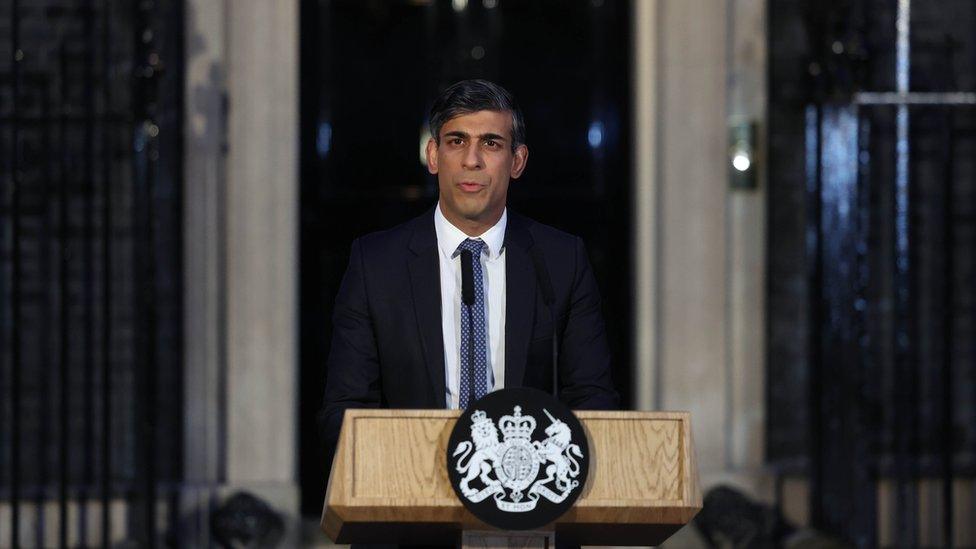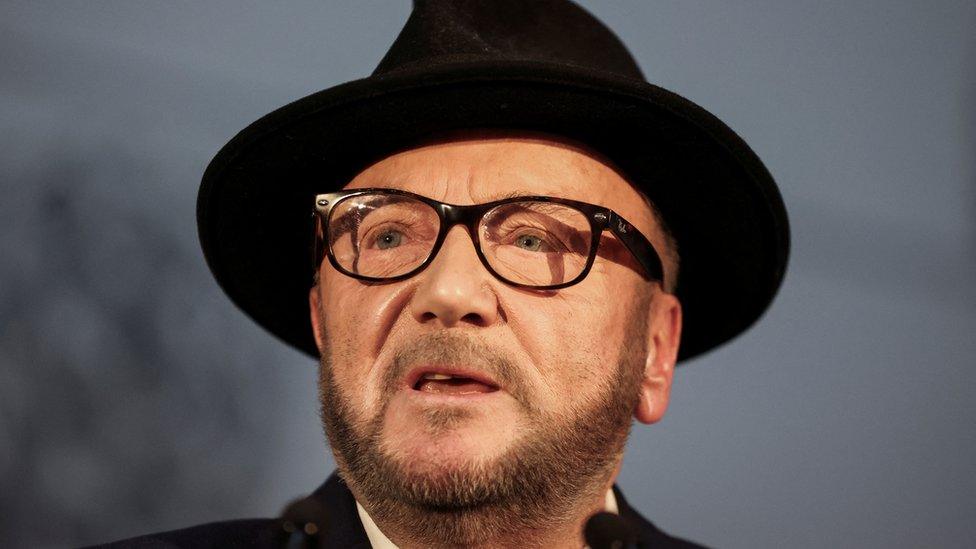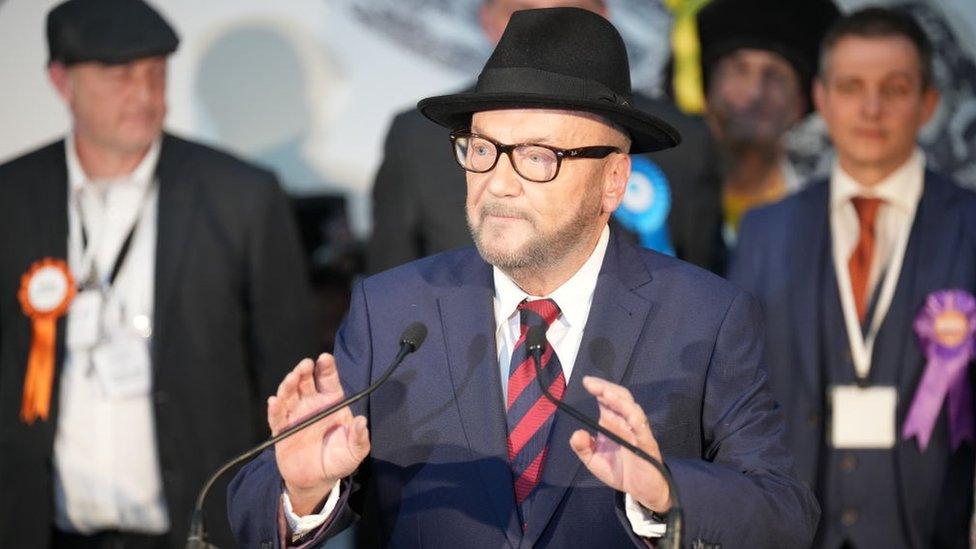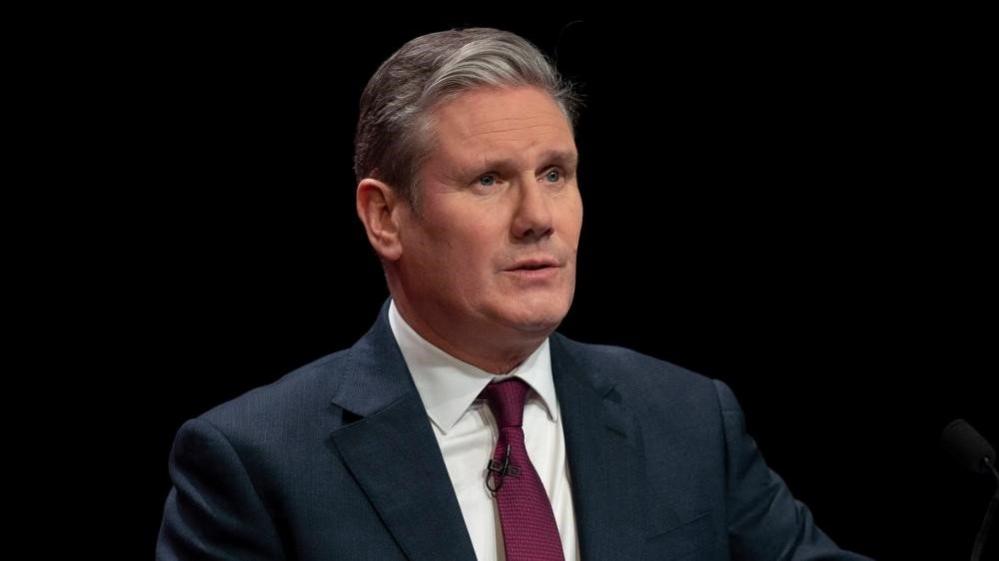PM's speech shows impact of Israel-Gaza war on UK politics
- Published

Prime Minister Rishi Sunak gave an address outside 10 Downing Street on Friday, where he said the country's democracy was under threat, and condemned Islamist and far-right extremists
Prime Ministerial addresses from the lectern outside 10 Downing Street are rare.
They imply a certain gravity.
Sufficiently so that when reporters were tipped off Rishi Sunak would be saying something from there, heart rates quickened a little as our first reaction was 'Is he calling an election?'.
No, it was quickly made clear that was not the case.
Instead - against the clearly audible backdrop of a protester shouting the odds in Whitehall - the prime minister fleshed out an argument he has been rehearsing throughout this week.
It goes like this - the fundamentals of the right to protest and the operational independence of the police are sacrosanct.
But what he believes to be a bending of long-standing norms need bending back to normality, and that deserves the lectern to be set up outside No10.
He told the audience the other side of the TV cameras and radio microphones that Intimidation, extremism, and the projection of offensive slogans onto parliamentary buildings had gone too far.

George Galloway, who has often spoken out in support of the Palestinians during Israel's war in Gaza, was comfortably elected as the new MP for Rochdale this week
As, he added, did the election of George Galloway.
Little wonder that prompted the opprobrium to fly in return from Mr Galloway.
The prime minister, he claimed, was "diminished and degraded".
Did Mr Sunak's argument have the gravity the location of its delivery implied?
His critics, within his own party and beyond, thought not.
"He says stuff but doesn't announce anything," said one unconvinced Tory.
Others, loyal to him, quickly offered their support on social media.
Not for the first time, the Labour leader Sir Keir Starmer was in broad agreement with Rishi Sunak.
"The Prime Minister is right to advocate unity and to condemn the unacceptable and intimidatory behaviour that we have seen recently," he said.
"It is an important task of leadership to defend our values and the common bonds that hold us together."
The outrages by Hamas in Israel last autumn and Israel's attacks on Gaza since continue to shape the contours of our public conversation for more than 10 consecutive days.
Few, if anyone, is immune, whether by accident or design. The prime minister, the Labour leader, the Scottish National Party, the Speaker of the House of Commons, Rochdale.
And George Galloway will arrive in Westminster on Monday morning.
Related topics
- Published1 March 2024

- Published26 February 2024
- Published21 February 2024

